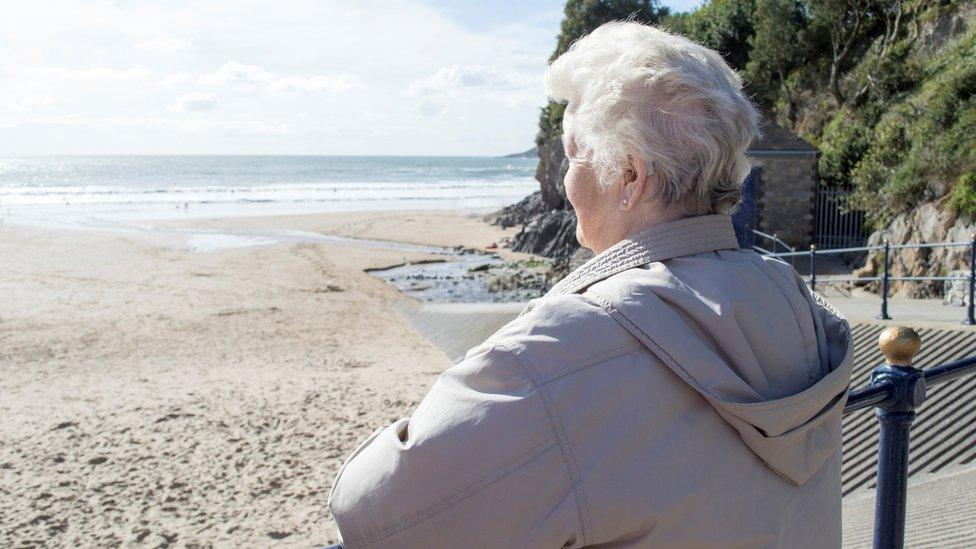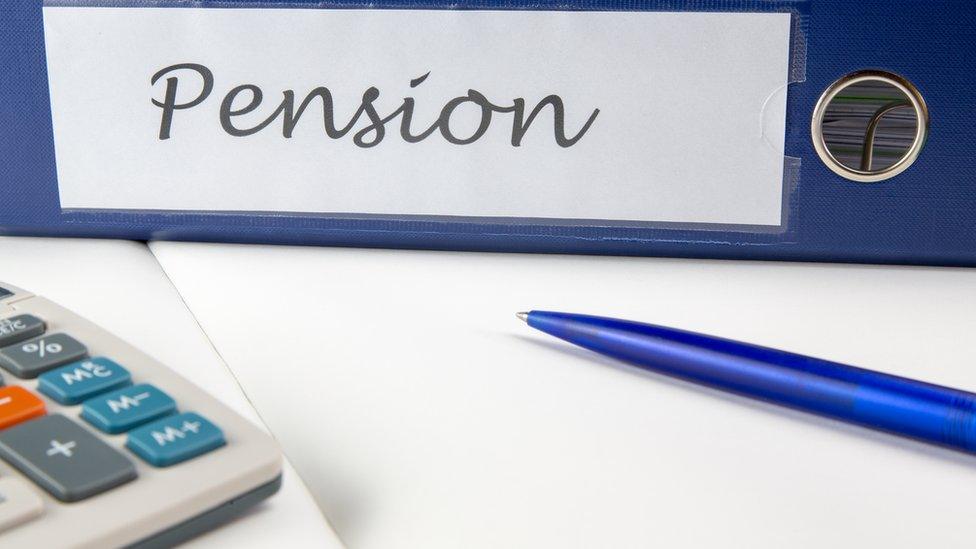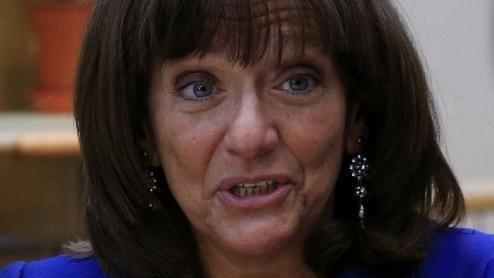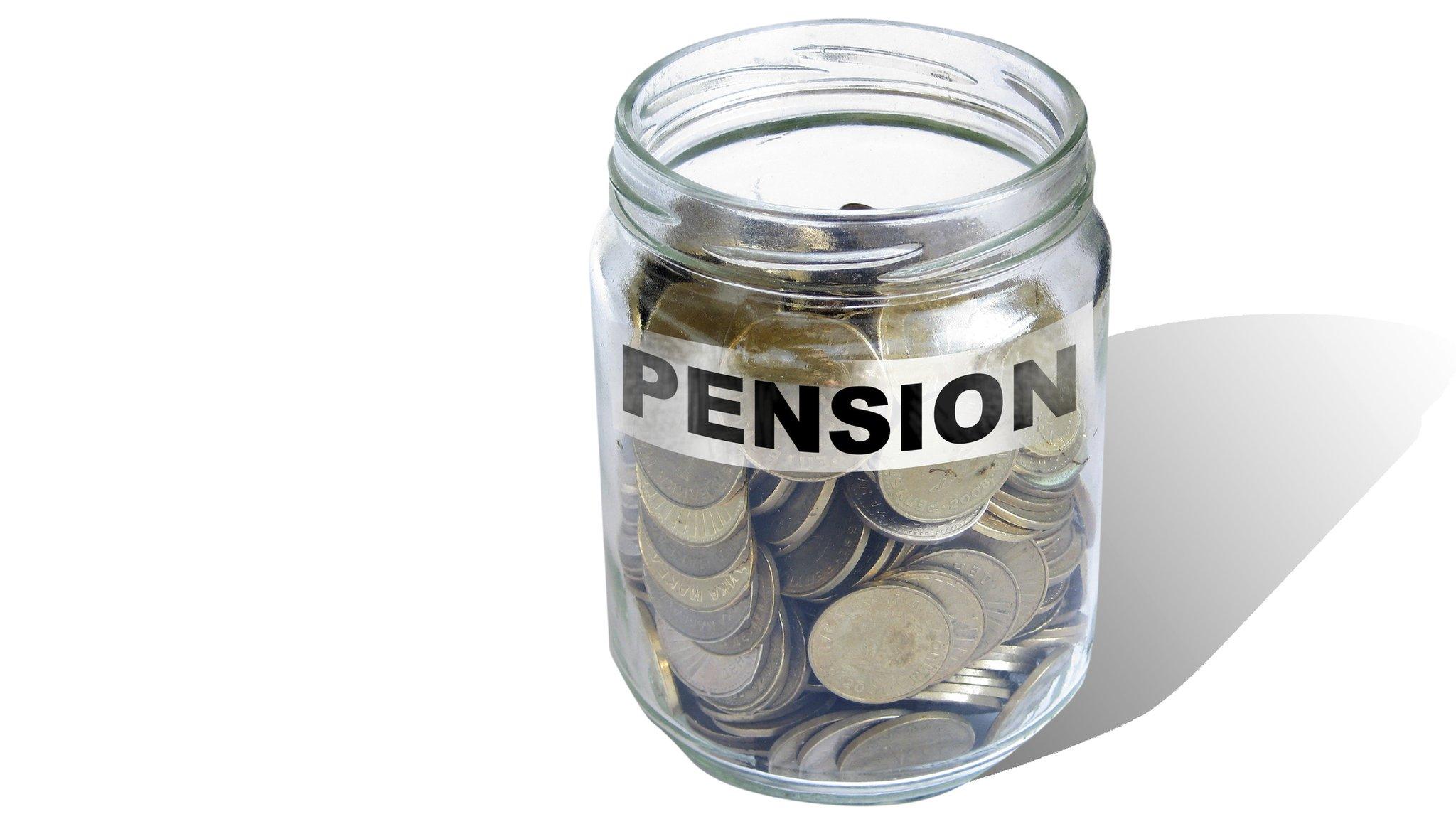Baroness Altmann: Scrap pensions triple-lock guarantee
- Published
Baroness Altmann: "A lot of pensioners are confused"
A guarantee that pensions should rise by at least 2.5% should be dropped from 2020, a former pensions minister has said.
Baroness Altmann, who left her post in Theresa May's reshuffle, said the policy had "outlived its purpose".
Since 2010, the "triple-lock" policy has meant that pensions rise by the inflation rate, average earnings or 2.5%, whichever is highest.
The government has said there are no plans to review the policy.
'Totemic policy'
In an interview with The Observer,, external Lady Altmann said the cost of the triple lock would become "enormous" after 2020 and that dropping it would ensure billions of pounds could be spent on better causes.
"The triple lock is a political construct, a totemic policy that is easy for politicians to trumpet, but from a pure policy perspective keeping it forever doesn't make sense," she said, arguing instead for a "double lock" whereby the state pension increases in line with either prices or earnings.
Lady Altmann told the paper she had lobbied the former Prime Minister David Cameron last year to alter the policy, but he had blocked the change for political reasons.
In their 2015 election manifesto, the Conservatives promised to extend the triple lock until 2020.
Last month, in the run-up to the EU referendum, Mr Cameron said that pensioner benefits, which cost £90bn every year, were a "policy priority" but might have to be re-examined in a post-Brexit climate.
'No courage'
She said: "Absolutely we must protect pensioner incomes, but the 2.5% bit doesn't make sense.
"If, for example, we went into a period of deflation where everything, both earnings and prices, was falling then putting pensions up 2.5% is a bit out of all proportion.
"Politically nobody had the courage to stand up and say we have done what we needed to do," she added.
"The cost of the triple lock on the public finances from 2020 onwards is enormous. And if you reduce it to a double lock you save billions of pounds."
The triple lock had "fulfilled it purpose" and pensioner households were now "no more likely to be poor than other age groups", she said.
Bigger picture
A spokeswoman for the Department for Work and Pensions said Lady Altmann had no bearing on policy and "we have no plans to review it".
"This is just speculation on her part and we don't comment on speculation," the spokeswoman added.
Age UK responded by saying that that triple lock was important because it provided older people with financial security.
"It's also necessary to see the bigger picture: research shows that the State Pension is still the largest single source of income for most older people in the UK, with the vast majority having contributed to it throughout their long working lives," said Caroline Abrahams, charity director of Age UK.
"1.6 million older people still live in poverty in the UK; and our State Pension is worth appreciably less than its equivalent in many other developed countries," she added.


Analysis: Simon Gompertz, personal finance correspondent
It doesn't take a genius to predict that the days of the triple lock may be numbered.
The Tories fought the last election on a commitment to keep it going, but that commitment only stands until 2020.
And of course David Cameron famously warned before the referendum that a victory for Leave would put the whole thing in question.
The reason is that in a low inflation environment, promising to raise the State Pension by at least 2.5% a year adds many billions to the cost of the system over decades.
A double lock isn't the only alternative. The lock could be scrapped completely. Or the government could consider a triple lock "lite" under which the guarantee of a minimum increase was drastically reduced.
Plus, there is another scenario, in which inflation - and perhaps wages — start to rise rapidly as a result of the drop in sterling and never look back.
In that scenario, a double lock would be just as generous as a triple lock.

- Published22 June 2016

- Published1 July 2016

- Published11 May 2016
